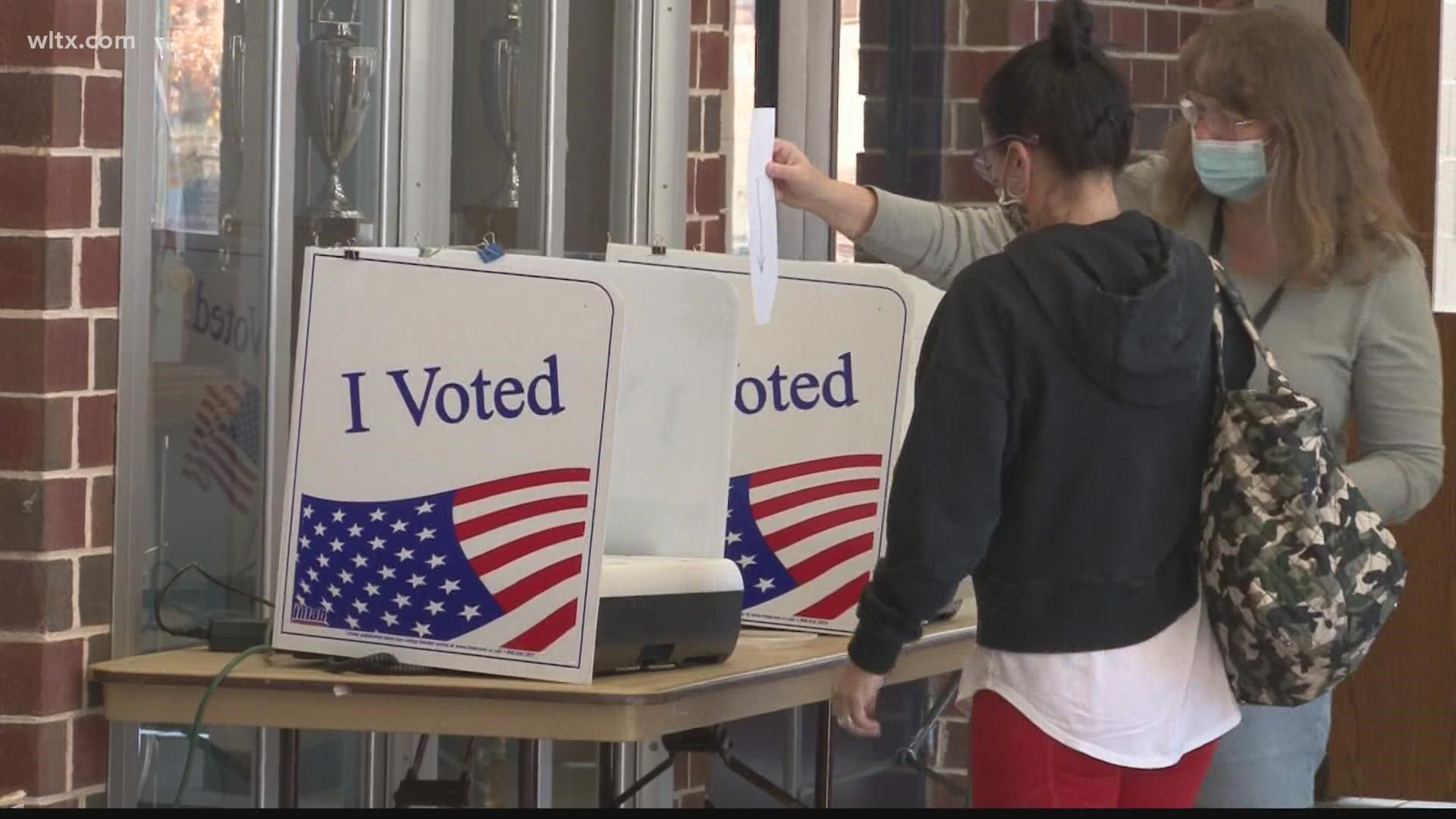COLUMBIA, S.C. — The chances of having true early voting in upcoming elections in South Carolina appears to be dying after the state House and governor accused the Senate of a power grab by giving itself the ability to confirm the governor's selections for the state elections board.
Gov. Henry McMaster told at least one senator he would veto the bill that passed unanimously in both the House and Senate if the changes made by the senators aren't removed.
The bill might not make it that far. The House is ready to reject the bill instead of accepting the Senate's changes to give it the authority to approve or turn down the governor's appointments to the State Election Commission. Both sides agree the Senate should have a say in the agency's director.
House Speaker Jay Lucas said Thursday that the Senate version “ended any real opportunity for election reform this year" while laying the blame on Senate Majority Leader Shane Massey. The governor, House and Senate leadership are all Republicans, although the governor and House often align, leaving the Senate on its own, like differing on proposals to raise teacher pay or cut taxes.
“After two years of extremely hard work by many in both chambers, it is a shame that the Senate Majority Leader chose to unnecessarily increase his own power rather than take concrete steps to make South Carolina’s elections the most secure in the United States,” Lucas said in a statement.
Instead of sending the bill to a small conference committee of senators and House members to work on a compromise, House Majority Leader Gary Simrill said if changes aren't offered, the House will send the bill back to committee. Such a step would likely kill it for this year and meaning the proposal will start back at square one in the 2023 session after the November elections.
The bill passed unanimously in both chambers because of compromise. It would open polling places for regular early voting for two weeks before elections, excluding Sundays. And it also would expand state-run audits of voting machines and ballot counting after elections and increases penalties for voter fraud.
But after the bill passed the House, the Senate added the ability for it to not just approve of the director of the State Election Commission, but also the five members of the board that oversees the agency.
Massey pushed for the provision, saying the governor did nothing when lawmakers were furious at the agency during the 2020 election for considering ballot drop boxes and eliminating witness signatures on absentee ballots without their approval. Executive Director Marci Andino left on her own to join a nonprofit election security organization.
“Right now there is no check. There’s none. Not only does the governor not do anything, but all of them are still there,” Massey said.
In a speech Wednesday on the Senate floor, Massey said he would call the House threat to kill off the bill since they face reelection this year.
“The idea that the governor would veto this with all the other things in there in an election year — I call,” Massey said.
Senators voted 35-9 to reject a proposal to revert back to just having a say in the director.
Massey said in a text message Thursday he appreciated the great amount of work the House put into election law changes and while there are some differences, he thinks both chambers agree on the most important items.
“The Senate will continue to work in good faith to deliver a strong election security package, and I am confident the House will do that, as well,” Massey wrote.
McMaster didn't give his veto threat publicly, but did write on Twitter shortly before the Senate passed the bill that Massey misled the Senate on a “common-sense compromise.” His staff said the proposal doesn’t allow the governor to even make temporary appointments for the board when the Senate isn’t in session after May when both primaries and the general election happen.
“If this bill doesn’t become law, the voters will know who to blame and why,” McMaster said.
Senator John Scott (D-Richland) tells News 19 he agrees with the Senate's added provision.
"Most key boards and commissions, the Senate does the confirmation. That's been the law," said Scott.
State Sen. Tom Davis, who was the legislative liaison for then-Gov, Mark Sanford nearly two decades ago, said he understood the Senate's desire for more oversight. But the Beaufort Republican said in this case they should accept oversight in additional reports the State Election Commission has to give lawmakers instead of potentially killing a bill that nearly everyone in South Carolina seems to want.
“I am really really concerned a lot of good work Is going to go for naught,” Davis said. “If we don’t pass this election reform bill, there is going to be hell to pay."
”Despite pushback, Massey said he doesn't think the bill is dead yet.
"They’re on an election ballot in a couple months and they want an election reform bill," said Massey. "So, I think the house will take some action."
The state allows in-person absentee voting before elections, but voters have to sign a form with an excuse like they will be out of town or working during poll hours.

